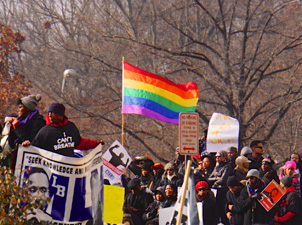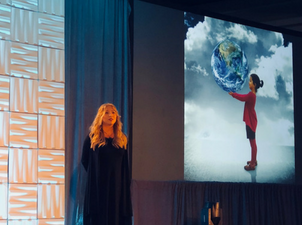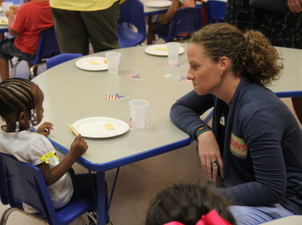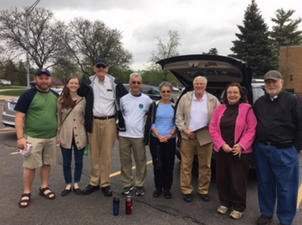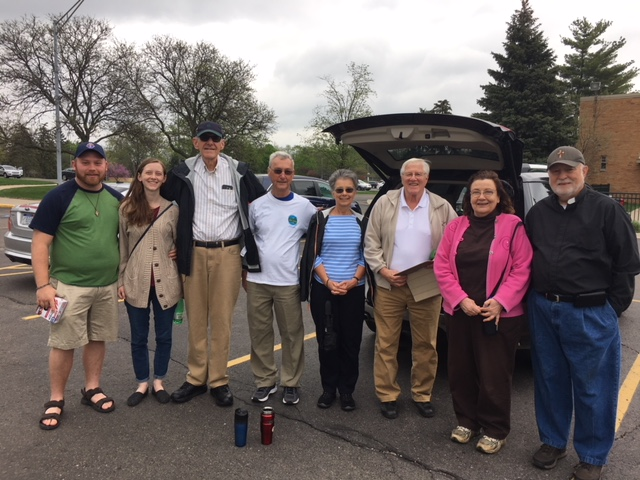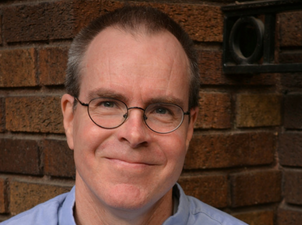
Humanizing the Immigration Debate: A Conversation with United We Dream
August 10, 2018
United We Dream, a youth-led organization with hundreds of thousands of members, is one of the strongest voices for immigrant rights in our nation. United We Dream has shaped the immigration debate on Capitol Hill and across the country since it was founded, advocating for Comprehensive Immigration Reform, Deferred Action for Childhood Arrivals (DACA) and Deferred Action for Parents of Americans and Lawful Permanent Residents (DAPA), and other legislation on the national, state, and local levels to improve the lives of immigrants and their families.
Recently, NETWORK Government Relations Associate, Sana Rizvi, interviewed Juan Manuel Guzman, Community and Government Affairs Manager at United We Dream, to hear more about United We Dream’s history, current advocacy, and vision for a future of just immigration policy. This interview has been edited and condensed for clarity.
Sana: Hi Juan Manuel, thanks for talking with us. Could you give us a brief history of how United We Dream was created and how important it was, in that process, to be an immigrant-led organization?
Juan Manuel: Yes, absolutely. The co-founders of United We Dream, Cristina Jimenez and Julieta Garibay, always tell us how United We Dream started. As you know in 2001, there was this Dream Act. It was a bill that was introduced by Senator Dick Durbin (D-IL), but it wasn’t up until 2006 or 2007 when immigrant youth, Dreamers, from different parts of the country had the opportunity to meet each other.
One of the catalysts of having United We Dream form is that idea of “Oh my gosh you are undocumented like me, but you live in another state and I didn’t know you existed.” So, United We Dream started as a network, a network of young immigrants who basically shared the same stories or similar stories and lived similar things here in the United States as undocumented immigrants. They decided to say, “Okay, you live in Texas, I live in New York, let’s keep in touch and see how we can move things forward.” So, that’s how it all started.
I think there was a point in the movement in which people, or at least the young people, their input was not as valid because young people making decision for themselves was not that mainstream. So, there was that need of people saying “No, I need to have a say about my life. Not only am I somebody who will tell his or her story, but I also want to be at that table where the decisions happen. I want to be able to influence that.” Because up until then it was other organizations doing the work and immigrant youth just being called to say their stories. More than the photo-op, immigrant youth wanted to have more influence on their own lives. So, they tell us that it all started with one desk. United We Dream only had a desk and a phone and people just trying to make the most out of it. As you know, it went from that desk and now it’s been 10 years.
Sana: We know that one of United We Dream’s guiding principles is “Our Stories are Power.” How do you use the power of stories in both mobilizing supporters and lobbying elected officials?
Juan Manuel: I think when politicians and the media and everyone talks about immigration in particular, it is a very hot issue. Sometimes when you don’t put a face to that, to those reports, when you don’t do that, you don’t humanize. What the stories do is basically put a face, a story, a human being, to what is being discussed. Politicians can talk a lot about policy but it is only when you understand the effect on people when it starts to make sense for you whether that policy is right or it’s wrong. So the stories are very powerful.
I did a lot of advocacy meetings with Republican offices for the DREAM Act campaign, for example. And you know, me, an undocumented immigrant, talking to Republican offices, that is not easy. But when I told them about the sacrifices of our families, for example, I remember telling this to one staffer: I told her, “Our families— our dads, or moms, our cousins— they worked hard for a better future. From dawn to sunset in backbreaking jobs, sometimes being abused, sometimes being treated unfairly, so we can have a better chance” and people would relate to that and say, “My mom worked a lot too and made a lot of sacrifices and you know what, I understand. It makes sense.” That is why our stories are so powerful.
Sana: What do you think is the most significant campaign that United We Dream has worked on in the past?
Juan Manuel: What a question. Probably the one that had the most impact is our DACA campaign. In 2010, right after the failure of the DREAM Act in Congress, United We Dream and other organizations decided to see how we could move into an executive branch strategy. Eventually, after a lot of work, activism, and organizing, immigrant youth were able to force the hand of the president of the United States into signing an executive order. It was the organizing, it was the strategizing, it was everything that made DACA happen. And that had, as you’ve probably seen, a huge impact on the lives of people, of families. It is not just about the DACA recipient who was able to get a work permit and be protected from deportation, but it was also an impact on the families, the economy, and the communities where we live. I think that is one of the most important results from our organizing.
Sana: So, moving onto the current situation which is, unfortunately, attacks on DACA and attacks on the immigrant community. With all of this, how is United We Dream balancing its priorities and what are some of your current campaigns?
Juan Manuel: I have to say the end of DACA [by President Trump] had a huge impact on United We Dream, because we are primarily led by undocumented young people. So the end of DACA took us to a 7-month [legislative] campaign for the Dream Act. That happened until March 5. We fought, we did everything that we could to find a legislative solution, but ultimately, politicians were not able to come up with a solution that provides a pathway to citizenship for immigrant youth but at the same time doesn’t hurt our families. So after March we decided to go back to the drawing board and see what is next.
I think at this moment what is important is that there have been a lot of leaders that emerged during the DREAM Act campaign. Even though there is that difficult reality that the future of the DACA program is in limbo, people have this energy, this willingness, to fight, to do something for their communities, to step up. There are many people in the country that we need to be involved at the local level. We have to see how we can protect immigrants at the local level. How do we work with the city council, how do we work with the school districts, how do we work with local organizations so we protect immigrants? Especially for people who are not protected or are losing protections, like TPS recipients or our own family who do not have any protection. How do we push for policies and people who are going to not only support us, but putting a stop to what has been coming from the federal government?
Sana: What keeps you all hopeful during this time? As an organization, I see United We Dream get up after we have a defeat and say, “Okay we are going to keep working, we are going to keep doing this.” What keeps that hope up?
Juan Manuel: I think we were able to see that in the DREAM Act campaign. We worked really long hours. We used to wake up really early, go to bed really late at night. Every day: working, going to Congressional offices, doing visits, doing actions, doing everything. We used all our energy and we were tired and it was difficult and it was cold, but at the same time you could see that people were still hopeful, were still energized and willing to fight. I think when you see that even though you might be tired, you might be burned out, you also have this sense of hope. In the worst times you can get the best out of people and I think that’s what gives me hope. When we didn’t have any certainty about our lives, it became the greatest leadership that we’ve seen. I think that’s what gives me hope that this is not over yet. We are going to keep fighting.
Sana: What is your long-term vision for just immigration policies in our country?
Juan Manuel: I think United We Dream has set it up clearly. It is not just about immigration. It goes beyond immigration. That was one thing we were able to see with President Trump coming to power. It is only not immigrants who are being attacked. It is also women. It is also our Muslim brothers and sisters. It is also the LGBTQ community that is being attacked, the environment. So I think the future for United We Dream and the vision is that we want to build this network of people, of people of conscience that want to work on behalf of these issues.
But most importantly, we want to seek racial justice because immigration is also a racial issue. You are seeing black and brown kids being separated from their families right now. They are not white kids. They are black and brown kids being separated from their families and black and brown people being incarcerated at such high levels. In the case of immigrants in detention centers, immigration detention centers, which are just jails— I can tell you that that is the future. Racial justice for issues that affect black and brown communities.
Sana: Are you hopeful that we will be victorious?
Juan Manuel: I think that sometimes we have to stumble and we have to fall a little bit so we can see the direction of our lives. I think that‘s true on a personal basis but also as a country. I think the country itself is waking up and people are saying, “I don’t agree with separating children, that’s not right. I don’t know what kind of political views you have but that is not a political issue, that’s a moral issue.” And I think people coming from that moral point of view will be able to say, “That is not the direction that we are going to go.” And I think progress, of course, is not linear, sometimes you have to take one step back to get two steps or three steps forward.
Sana: Can you give one word to describe how this movement makes you feel?
Juan Manuel: Wow, that’s a profound question. I think empowered. I joined the movement right around when Donald Trump was about to become the presidential nominee for the Republican Party. Before that, I was in the shadows and I felt very disempowered. That’s how you just feel. You don’t know your future here in the country. All these things being said about you and your community and your people. I had so much frustration and anger inside myself because of all the hateful things I was hearing. It was through the movement in United We Dream that I could feel empowered. I was able to say, “We can have an impact on the direction of our lives.”
Originally published in Connection Magazine. Read the full issue here.







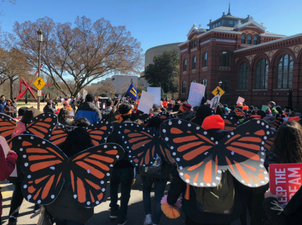
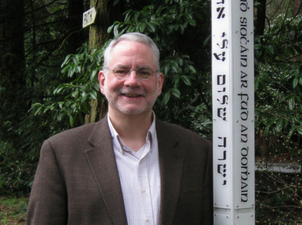
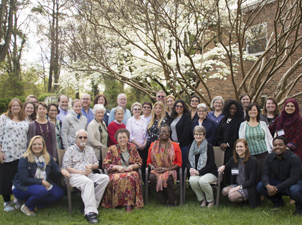
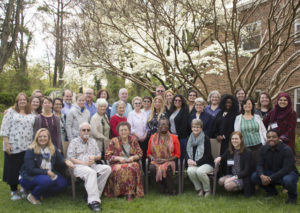 If you know someone who would excel in this role, including yourself, please complete the name-raising form at
If you know someone who would excel in this role, including yourself, please complete the name-raising form at 